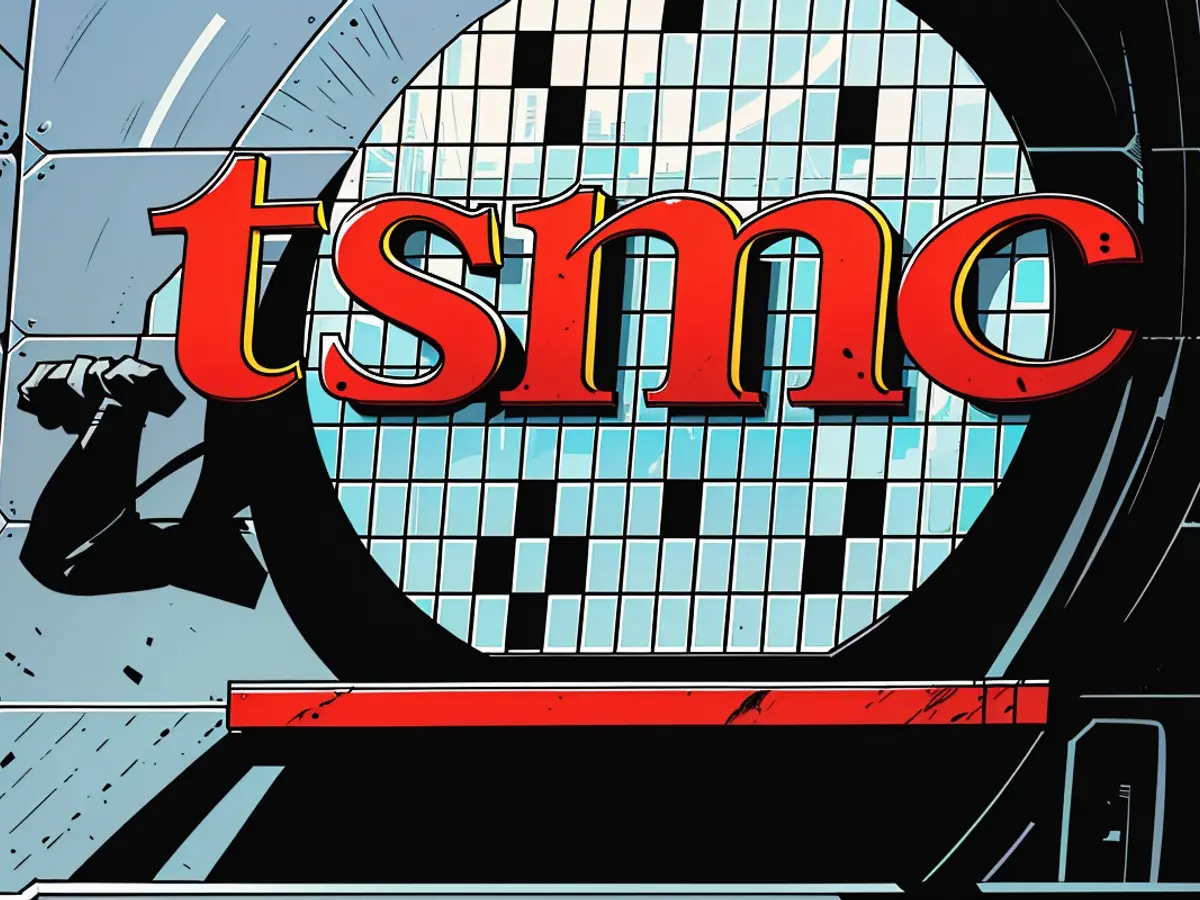- Semiconductor heavyweight TSMC initiates significant venture in Dresden
In Saxony, there's not much visibility yet on the recent industrial venture. However, things are predicted to speed up in the upcoming months within Silicon Saxony, which is what the Free State calls its microelectronics and semiconductor sector around Dresden, inspired by Silicon Valley in California. By 2027, Taiwan's leading contract microelectronics manufacturer, TSMC, intends to manufacture chips, primarily for the automotive industry, in the northern part of Dresden in collaboration with three partners. This move signifies TSMC's entry into Europe. The inaugural groundbreaking ceremony is set to take place today, with German Chancellor Olaf Scholz (SPD) and EU Commission President Ursula von der Leyen expected to attend as guests.
What's in store for Dresden?
TSMC, along with Bosch, Infineon, and NXP Semiconductor, plans to establish a new semiconductor plant in Dresden. Each partner holds a 10% stake in the European Semiconductor Manufacturing Company (ESMC), with TSMC controlling the rest 70%. The company anticipates the investment to surpass ten billion euros. Half of the investment burdens will be borne by the German government, as the agreement includes a state subsidy package.
What products will be manufactured?
In contrast to high-performance smartphone chips, the semiconductors produced at the new facility in Dresden won't utilize the latest 3- or 4-nanometer processes. Instead, conventional chips with broader structure widths will be the focus. These chips are widely used in the automotive sector, and with the rise of connected vehicles and electric cars, there's an increasing demand for them.
From where will the skilled workforce be sourced?
ESMC intends to create 2000 job openings. Preparations are currently underway to accommodate the need for skilled workers. Recently, 30 students from Saxon universities returned from Taiwan following a six-month academic stint and internship at TSMC. Commencing from the next academic year, dual training programs for the professions of microtechnologist and mechatronics will be initiated. TSMC plans to exhibit at the "Karrierestart" career fair in Dresden next year, attracting local talent. Skilled labor from Taiwan is also anticipated to join the team in Dresden.
How far along are other significant initiatives in the sector in Germany?
Intel aims to construct several chip factories in Magdeburg, representing the largest investment in Germany since World War II. The German government looks to contribute 9.9 billion euros to this endeavor, but EU approval is yet to be secured. Intel is reportedly pursuing cost-cutting measures but remains committed to the project, according to the state government in Magdeburg.
In Ensdorf, Saarland, the US manufacturer Wolfspeed plans to establish a silicon carbide semiconductor factory for approximately 2.7 billion euros. However, construction delays have been reported, with construction not scheduled to commence until 2025. In Munich, Apple is expanding its chip design center on a billion-dollar scale.
An expansion plan that is close by to TSMC's project in Dresden includes Infineon's development of a new factory. According to CEO Jochen Hanebeck, the machinery is expected to arrive in September 2025, with production to commence the following year. Infineon intends to invest five billion euros in this expansion and create over 1000 new job opportunities.
Why does the German government support these ventures?
The German government supports these initiatives to bolster the semiconductor industry in Germany and Europe, safeguarding technological autonomy and economic competitiveness. The investments also create employment opportunities and stimulate economic growth.
**The COVID-19 pandemic led to widespread supply chain disruptions, highlighting Germany and Europe's reliance on chip supplies, predominantly from Asia. The automotive sector suffered greatly, with several manufacturers ceasing production. The potential for Germany to emerge as Europe's prime semiconductor manufacturing hub is now viewed positively by German Chancellor Olaf Scholz (SPD), as it would enhance the resilience of global production structures. State assistance is not uncommon in such undertakings. Nevertheless, there's always criticism surrounding subsidizing companies with taxpayer funds.
Other companies are also making significant strides in the semiconductor sector in Germany. For instance, Globalfoundries, a Swiss-American manufacturing company, is planning to expand its existing site in Dresden, which could create over 500 jobs.
However, the pace and success of these initiatives depend on various factors, including regulatory approvals, supply chain challenges, and the availability of skilled labor. Other countries, such as the United States, are also actively investing in semiconductor manufacturing to maintain their technological edge and reduce dependence on foreign suppliers.








